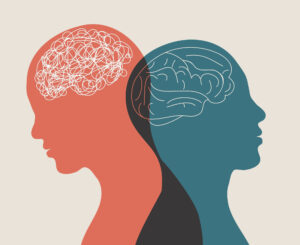Episode Summary:
In this 2-part episode, learn how the health of your gut, from intake to exit, depends on your personal medical history and diet, and, we are now learning, the diversity and character of your gut bacteria — the microbiome. Highlights: Colonoscopies get a surprisingly good rap these days, stool samples are amazingly useful, and your diet is important because it feeds and influences not only you and your gut but also your 100 trillion bacteria friends.
Episode Guests:
Part A: Upper and Lower Gastrointestinal (GI) Disease and Screening
Guest: Alan Smith, M.D. Gastroenterologist, Confluence Health, Wenatchee Valley Hospital, and Clinics
Part B: You Are What You Eat: The Role of the GI Microbiome in Health.
Guest: William R. DePaolo, Ph.D. Associate Professor of Medicine, University of Washington, Director of the Center for Microbiome Sciences & Therapeutics
During This Episode We Discuss:
PART A: Upper and Lower Gastrointestinal (GI) Disease and Screening
- Common Gastrointestinal problems.
- Learn about symptoms, signs, evaluation, and treatment of Colon Cancer, Inflammatory Bowel Disease, Reflux, Hepatitis.
- What is appropriate screening for colon cancer, esophageal cancer, rectal cancer? When to start, who should be screened?
- Risk factors for Gastrointestinal Cancers.
- Advances in diagnostic tools.
PART B: You Are What You Eat: The Role of the GI Microbiome in Health
- What is your microbiome?
- How does it influence your health and immune system?
- How do you improve it?
- What about supplements and probiotics?
- Can your microbiome predict your health status, risks for disease?
- Can you transplant your gut microbes?
- What research is being done on your gut microbiome?
- What are the current limits of understanding and use of the microbiome environment?
Quotes (Tweetables):
“Rectal bleeding should be investigated, we do find unfortunately colon cancers occasionally in patients in their late 20’s and 30’s, so that’s why we don’t ignore rectal bleeding at almost any age”
“Focusing on diet weight loss, plenty of time before you lay down at night after a big meal, and reducing the size of your meal, can all be terrific strategies( to help with reflux).”
Alan Smith, M.D.
“We have one hundred trillion bacteria that reside inside the gastrointestinal tract, that’s about the same number of human cells that we have, that means we have as many bacteria in our body as human cells, so, a one-to-one ratio.”
“These bacteria have a huge amount of genetic diversity, for every one of our human genes, there are about a hundred bacterial genes. So that’s an incredible amount of influence that these bugs have on us. So what do these bacteria do?”
“They are essential for a number of physiological functions. They are responsible for our immune health, they help to strengthen our immune system, and to make sure that we don’t have reactions against food or our own tissues, they are very important for digestion, energy as well as hormonal regulation and recently it’s been found they are very important for our central nervous system.”
“Looking for a quick fix as far as dieting, weight loss, things like that using these online companies, you have to be very skeptical of the services that they’re offering and if they’re promising more than they can give.”
William De Paolo, Ph.D.
Recommended Resources:
Episode Transcript:
Coming soon!!



